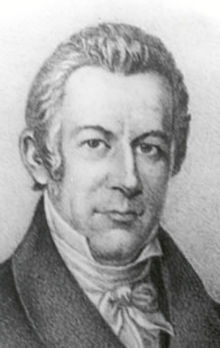William Findlay | |
|---|---|
 | |
| United States Senator from Pennsylvania | |
| In office December 10, 1821 – March 3, 1827 | |
| Preceded by | Jonathan Roberts |
| Succeeded by | Isaac D. Barnard |
| 4th Governor of Pennsylvania | |
| In office December 16, 1817 – December 19, 1820 | |
| Preceded by | Simon Snyder |
| Succeeded by | Joseph Hiester |
| 7th Treasurer of Pennsylvania | |
| In office 1807–1817 | |
| Governor | Thomas McKean Simon Snyder |
| Preceded by | Isaac Weaver, Jr. |
| Succeeded by | R. M. Crain |
| Member of the Pennsylvania House of Representatives | |
| In office 1804–1807 | |
| Personal details | |
| Born | June 20, 1768 Mercersburg, Province of Pennsylvania, British America |
| Died | November 12, 1846 (aged 78) Harrisburg, Pennsylvania, U.S. |
| Nationality | American |
| Political party | Democratic-Republican Party |
| Spouse | Nancy Irwin (?-July 27, 1824; her death) |
| Profession | Politician and public official |
| Signature | |
William Findlay (June 20, 1768 – November 12, 1846) was an American farmer, lawyer, and politician. A member of the Democratic-Republican Party, he served as the fourth governor of Pennsylvania from 1817 to 1820,[1] and as a United States senator from 1821 to 1827. He was one of three Findlay brothers born and raised in Mercersburg, Pennsylvania, on their family farm.
All became politicians, serving at national, state and local levels in Pennsylvania and Ohio in the early federal years. He sold Findlay Farm in 1823; it was listed on the National Register of Historic Places in 1982.
- ^ "The Governors of Pennsylvania." Mount Union, Pennsylvania: The Mount Union Times, January 27, 1911, p. 1 (subscription required).